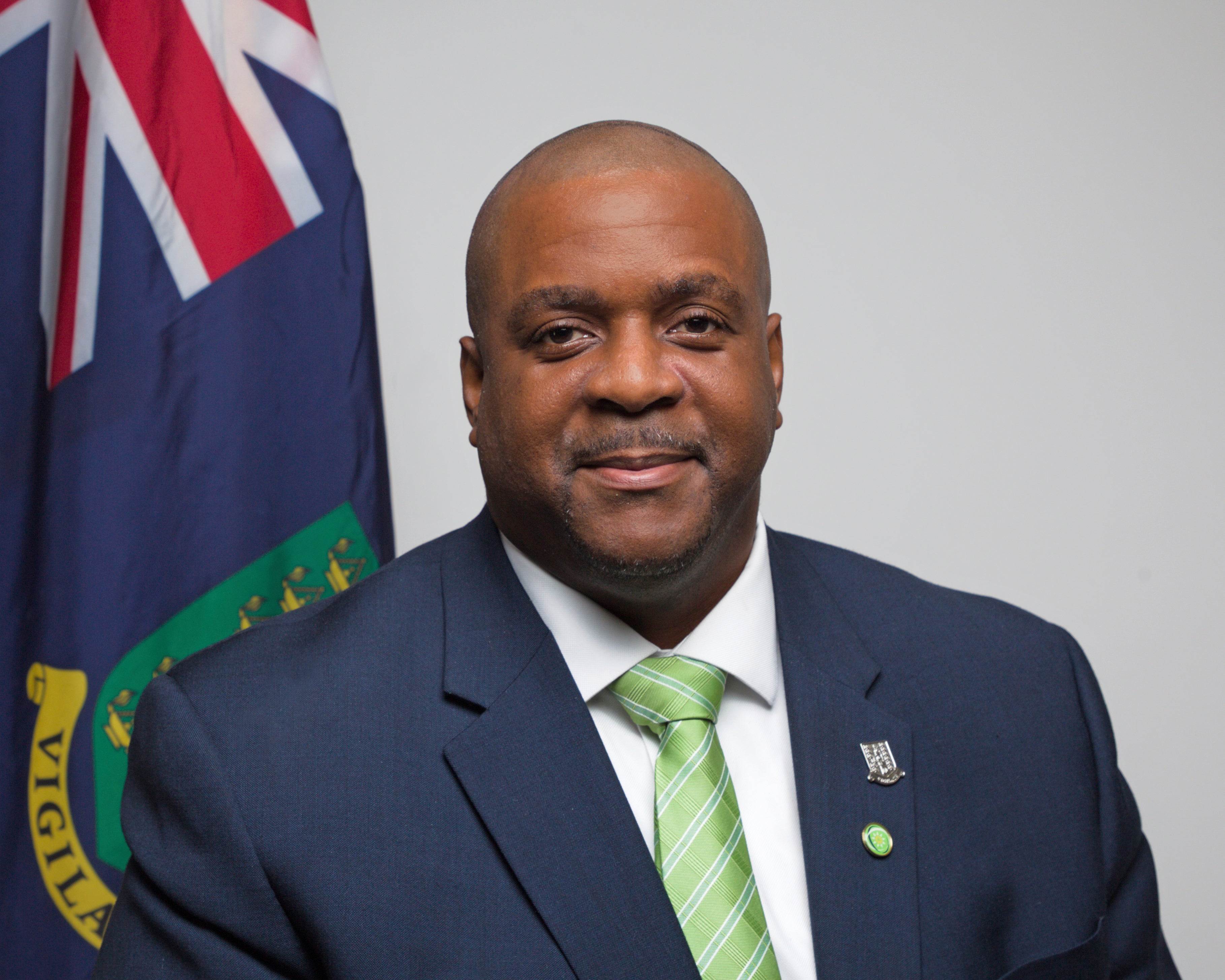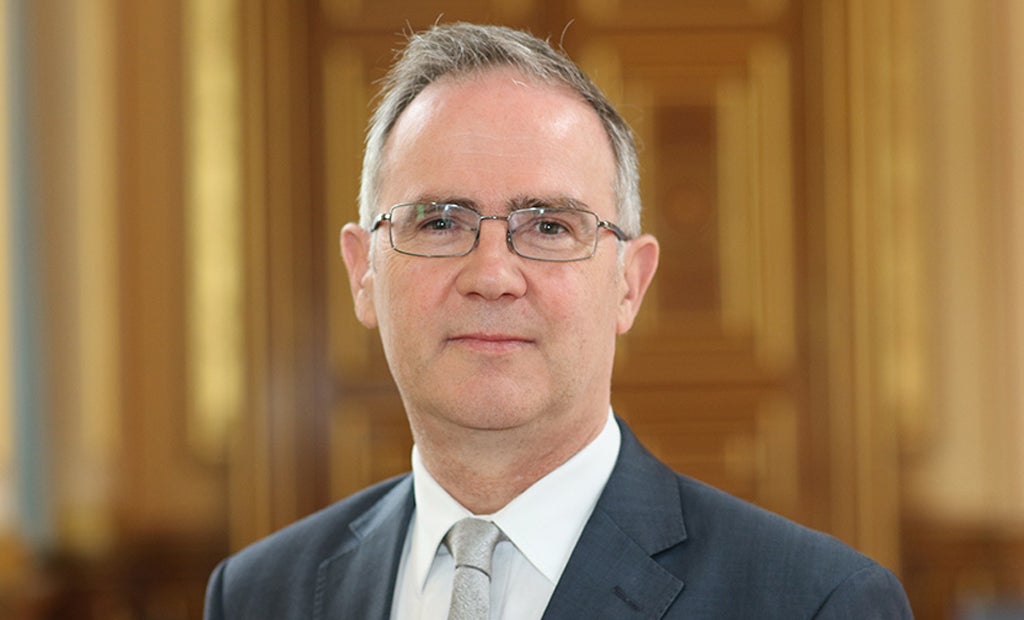Protests in British Virgin Islands over plan for UK to impose direct rule on territory
Plans to rule the islands from London after arrest of elected leader likened to “colonialism” by demonstrators

Your support helps us to tell the story
From reproductive rights to climate change to Big Tech, The Independent is on the ground when the story is developing. Whether it's investigating the financials of Elon Musk's pro-Trump PAC or producing our latest documentary, 'The A Word', which shines a light on the American women fighting for reproductive rights, we know how important it is to parse out the facts from the messaging.
At such a critical moment in US history, we need reporters on the ground. Your donation allows us to keep sending journalists to speak to both sides of the story.
The Independent is trusted by Americans across the entire political spectrum. And unlike many other quality news outlets, we choose not to lock Americans out of our reporting and analysis with paywalls. We believe quality journalism should be available to everyone, paid for by those who can afford it.
Your support makes all the difference.Protests have taken place in the British Virgin Islands (BVI) against plans for the UK to take direct rule of the territory following the arrest of its elected leader.
Hundreds of demonstrators gathered outside of government House in Tortola, the residence of the governor John Rankin, on Monday, after an inquiry led by British judge Sir Gary Hickinbottom into corruption recommended the islands be governed from London for two years.
It is being proposed that Mr Rankin, who represents the Queen, should assume the position of premier in place of an elected government official.
However, many BVI residents are resisting this suggestion which has been described as “colonial”, particularly in the context of the region’s history as a former British slave colony, and undemocratic as there are no plans to put the matter to the public.
Protesters blocked traffic outside the governor’s house and chanted slogans such as ‘no to British rule’ and ‘no going back to chains’.
One speaker told the crowd: “How can you speak for us if you have not had a conversation with us, the people? It is possible for us to condemn the actions of corrupt leaders and also believe that we can be authorities on good governance as well,” the speaker continued.
Bishop John Ivan Cline, of the New Life Baptist Church, who organised the demonstration, told local media: “This is a very significant, historical moment in the life of the Virgin Islands. The UK has decided after 70 years of self-governance that they want to take our rights and deny us the opportunity of having a democratically elected government.”

“They want to tell us that one man should be able to make the decisions for 30,000 people, they want to tell us that we don’t have the necessary compentence to run our country and we are saying we will not surrender our rights,” the clergyman continued.
“We welcome the UK’s help - but a democracy and a dictatorship are two different things. We want the opportunity to go back to the polls and elect a democratic government to rule over us. But this colonialist mindet thatyou will tell us what to do is wrong, unjust and we will not stand for it.”
The protests come after the arrest of BVI premier Andrew Fahie in Miami on Thursday on drug conspiracy and money laundering charges in an operation led by the Drug Enforcement Agency (DEA). The territory’s director of ports, Oleanvine Maynard, was also arrested.
The report was unrelated to the incidents in the US last week, although its publication was brought forward forward following events in the US last week.
The UK’s minister for the overseas territories, Amanda Milling, arrived in the BVI on Sunday for a three-day trip in which discussions will be had about future leadership of the region.
However, the content of these discussions has been shrouded in ambiguity, protesters have said, as they called for Ms Milling to include BVI residents in conversations about the country’s future.
The BVI has a population of 35,000 people is currently governed under a 2007 constitution, giving it limited self-rule under a governor who is the ultimate executive authority as the representative of the Queen.
“Do we not think there are good people in this country who we can elect as worthy leaders of the BVI? This is our future and should be in our hands,” another speaker said.
“This is our country! It’s our responsibility to take charge”.
“I want to say to her Majesty, the Queen: tell your people to be fair with us. This is not justice,” another speaker said.
In a statement earlier this week, the acting premier Natalio Wheatley said he was “very concerned” about the recommendation.

Mr Wheatley said: “What this would mean in real terms is that there would be no more elected representatives who represent the people of the districts and the territory in the House of Assembly where laws are made for our society.
“There also would be no government ministers to advance the public’s priorities or a cabinet to approve policy. All of this authority would be vested in the governor.
“The benefit of representative democracy to the public is the understanding and responsiveness of their elected representatives to their challenges, who also serve as conduits of their views, especially on reforms.”

This follows widespread protests against royal visits to countries in the Caribbean and calls for slavery reparations from Britain over the past two months.
When approached by The Independent for comment about the protests. the UK’s Foreign and Commonwealth Office did not make a specific comment.
However, a spokesperson pointed towards a statement on governance in the BVI issued by foreign secretary Lizz Truss on Friday.
It reads: “In January 2021, we set out significant concerns about the deteriorating state of governance in the British Virgin Islands, as well as the potential vulnerability of the islands to serious organised crime.
“The UK government supported the then governor’s decision to launch an independent Inquiry into governance of the territory.
“The inquiry report published today by the governor shows clearly that substantial legislative and constitutional change is required to restore the standards of governance that the people of the British Virgin Islands are entitled to.”
Join our commenting forum
Join thought-provoking conversations, follow other Independent readers and see their replies
Comments